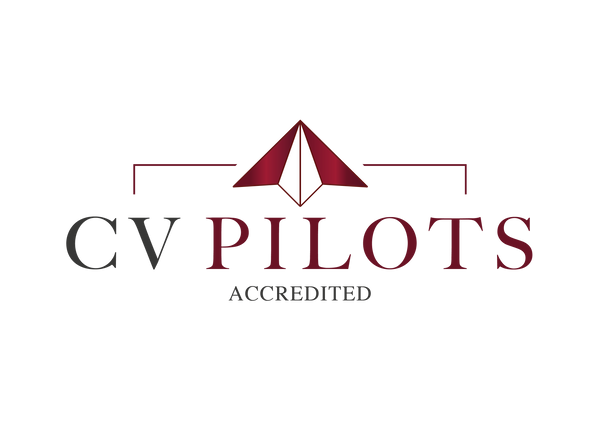
10 Smart Questions That Impress Recruiters at the End of Your Interview
10 Smart Questions That Impress Recruiters at the End of Your Interview
If there’s one moment in an interview where candidates often lose points, it’s the end.
The hiring manager leans back and asks:
“Do you have any questions for us?”
Many breathe a sigh of relief, assuming the hard part is over. But this is actually your last — and sometimes best — chance to stand out.
Fail to ask thoughtful questions, and you risk coming across as unprepared or disinterested. Nail this stage, and you can leave a lasting impression that sets you apart from other candidates.
Recruiters told us exactly what they want to hear when they’re on the other side of the table.
If you’re ready to take the guesswork out of job applications and
give yourself a genuine competitive edge, our CV Reviews and
CV Template Bundles are designed to help you stand out in even
the toughest hiring markets.
CV Reviews – Save £60
If you’re not sure your CV is truly working for you, our
Professional CV Review Service provides in-depth, recruiter-level
feedback on content, structure, and ATS compatibility. You’ll receive
a personalised action plan showing exactly what’s holding you back
and how to fix it, so you can apply with confidence. Use discount code
PCVR60 at checkout to save £60 and give your next application the
competitive edge it deserves.
CV Template Bundles – Save £40
Prefer to write your own CV but want a proven framework? Our
CV Template Bundles include an ATS-friendly, recruiter-approved
template, plus our storytelling framework, metrics tracker, CV checklist,
and scorecard - everything you need to create a document that sells
your skills and achievements. Use discount code CVTB40 to get
£40 off and start building a CV that gets noticed for all the right
reasons.
These tools pull back the curtain on the hiring process, cutting
through the smoke and mirrors so you understand exactly what
employers and ATS systems are really looking for
Why Asking Questions Is Essential
“Even if you don’t feel you need more information, asking questions shows you’re engaged and serious about the role,” says Darrell Rosenstein, founder of The Rosenstein Group.
More than that, it gives you crucial information to decide whether the job is right for you. A CV may get you the interview, but smart questions help you decide if this role truly aligns with your goals.
Ben Lamarche, General Manager at Lock Search Group, puts it bluntly:
“If someone has no questions, I won’t consider them for the role. It shows they haven’t done their research — and that’s a red flag.”
10 Questions Recruiters Say Impress Them
1) “What does your idea of the perfect candidate look like?”
This helps you understand the exact skills and qualities the employer values most — and gives you the chance to mirror them.
2) “What does success in this role look like?”
Performance-focused candidates always stand out. You’ll also gain clarity on how you’ll be measured in the role.
3) “What are the opportunities for growth here?”
Recruiters say this signals long-term thinking and ambition — not someone who’ll leave in 12 months.
4) “What’s the biggest challenge the company is facing right now?”
This shows you’ve done your homework and are already thinking about how you could contribute solutions.
5) “What’s your favourite thing about working here?”
Simple but powerful. It humanises the conversation and shows interest in the interviewer, not just the job.
6) “Why is this position open?”
The answer reveals whether the company is growing, restructuring, or replacing someone — all key context for you.
7) “How would you describe the culture here?”
Culture fit is just as important as skills. Recruiters appreciate candidates who take this seriously.
8) “What happened to the last person in this role?”
Was it a promotion, a resignation, or something less positive? Their answer can reveal how employees are treated and supported.
9) “Who would I be working most closely with?”
Understanding the team dynamics shows foresight and helps you assess whether you’d thrive in their environment.
10) “What are the next steps in the hiring process?”
This shows you’re proactive and gives you clarity on the timeline — so you can follow up confidently.
How Many Questions Should You Ask?
There’s a balance. Recruiters say two or three big, thoughtful questions is enough — or a few quick-fire ones if time is short.
James Baker, CEO of Keynote Search, warns:
“If someone has no questions, it typically means they aren’t motivated by the opportunity — and that makes them a potential flight risk.”
In Summary
Interviews are not one-way interrogations. They’re conversations — and asking the right questions proves you’re not just chasing any job, you’re assessing whether this is the right move for your career.
As recruiter Paul French explains:
“Not asking questions makes you look passive. Today’s employers want people who think critically, spot trends, and find solutions.”
So when that final moment comes, don’t waste it. Use it to show curiosity, strategic thinking, and confidence in your own career journey.
To find out more, visit our website www.cvpilots.co.uk If you have any further questions, you can either book a consultation call with one of our team, or get in touch via email on team@cvpilots.co.uk

